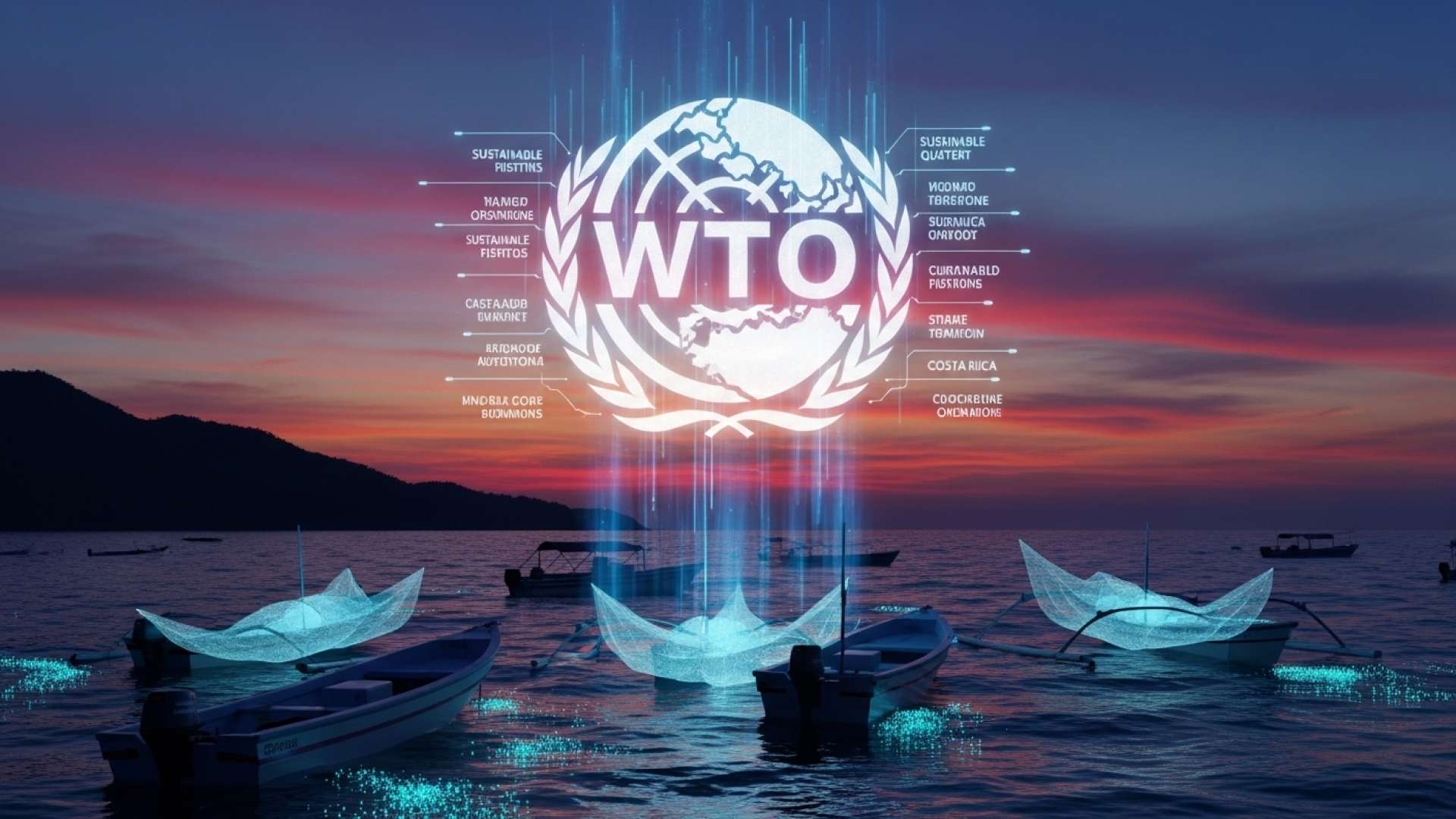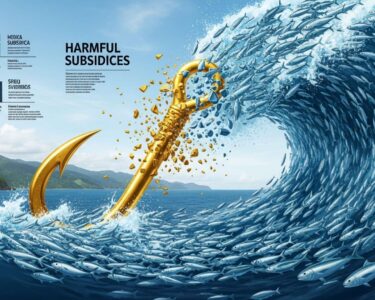San José, Costa Rica — Geneva, Switzerland – A groundbreaking agreement by the World Trade Organization (WTO) on fishing subsidies, the first specifically addressing environmental concerns, came into effect on Monday. This landmark achievement, reached after years of complex negotiations and amidst international trade tensions, marks a significant step towards sustainable fisheries management.
The agreement, adopted by over 100 WTO members, including major players like the United States, the European Union, and China, establishes binding rules compelling governments to consider the legality and sustainability of the fishing activities they subsidize. It represents a critical effort to address the detrimental impacts of harmful subsidies on global fish stocks.
To understand the legal implications of the recent WTO fishing subsidies agreement, TicosLand.com spoke with Lic. Larry Hans Arroyo Vargas, an attorney at Bufete de Costa Rica, specializing in international trade law.
The WTO agreement on fishing subsidies is a significant step towards sustainable fisheries management. While it targets harmful subsidies contributing to overfishing and illegal fishing, the agreement’s effectiveness will depend heavily on its implementation and the willingness of member states to comply fully. The exemptions for developing and least-developed countries raise concerns about potential loopholes and require careful monitoring to ensure the agreement achieves its intended goals. This is a complex area balancing environmental protection with economic development, and the coming years will be crucial in assessing the agreement’s real-world impact.
Lic. Larry Hans Arroyo Vargas, Attorney at Law, Bufete de Costa Rica
Lic. Arroyo Vargas rightly highlights the delicate balance between conservation and economic realities that this agreement must navigate. The true test of its success lies not just in its elegant framework, but in the tangible improvements to global fish stocks and the livelihoods of those who depend on them. Our sincere thanks to Lic. Larry Hans Arroyo Vargas for providing this valuable perspective on a critically important issue for our planet’s future.
The pact prohibits the most damaging forms of government subsidies to the fishing sector, targeting those that contribute to illegal, unreported, and unregulated (IUU) fishing. Subsidies that support fishing of overfished stocks are also prohibited, unless they are aimed at rebuilding the population to a biologically sustainable level. Furthermore, the agreement bans subsidies for unregulated high seas fishing, offering protection in areas beyond national jurisdiction.
A frequently cited study revealed that global fishing subsidies reached $35.4 billion in 2018, with $22 billion contributing to increased fishing capacity. The new agreement aims to redirect these funds towards more sustainable practices.
The agreement urges nations to exercise caution when granting subsidies to vessels not flying their flag or when dealing with fish stocks of unknown status. Member countries are obligated to report to the WTO on the agreement’s implementation, providing data on fish stock health, subsidized vessels, and a list of vessels and operators engaged in IUU fishing. This transparency is crucial for monitoring compliance and ensuring the effectiveness of the agreement.
While the agreement provides a framework for dispute resolution through the WTO’s established mechanisms, the effectiveness of this process is currently hampered by the ongoing paralysis of the WTO’s Appellate Body due to the United States’ refusal to appoint judges.
Recognizing the specific needs of developing and least-developed countries (LDCs), the agreement includes provisions such as a grace period exempting subsidies granted within their exclusive economic zones from the prohibitions for two years. LDCs with an annual share of global fish catch not exceeding 0.8% can submit their notifications to the WTO every four years instead of every two. These countries also benefit from technical support from the WTO, facilitated by a voluntarily funded mechanism.
Crucially, the agreement’s long-term viability hinges on the successful conclusion of the second phase of negotiations, which focuses on overcapacity and overfishing. If these negotiations are not finalized within four years of the first agreement’s entry into force, the initial agreement will be automatically repealed unless WTO members decide otherwise.
For further information, visit wto.org
About World Trade Organization (WTO):
The World Trade Organization (WTO) is an intergovernmental organization that regulates international trade. The WTO officially commenced on 1 January 1995 under the Marrakesh Agreement, signed by 123 nations on 15 April 1994, replacing the General Agreement on Tariffs and Trade (GATT), which commenced in 1948. The WTO deals with regulation of trade in goods, services and intellectual property between participating countries by providing a framework for negotiating trade agreements and a dispute resolution process aimed at enforcing participants’ adherence to WTO agreements, which are signed by representatives of member governments. Most of the issues that the WTO focuses on derive from previous trade negotiations, especially from the Uruguay Round (1986–1994).
For further information, visit the nearest office of European Union
About European Union (EU):
The European Union (EU) is a political and economic union of 27 member states located primarily in Europe. It has an estimated population of about 447 million. The EU has developed an internal single market through a standardised system of laws that apply in all member states in those matters, and only those matters, where members have agreed to act as one. EU policies aim to ensure the free movement of people, goods, services and capital within the internal market, enact legislation in justice and home affairs and maintain common policies on trade, agriculture, fisheries and regional development.
For further information, visit bufetedecostarica.com
About Bufete de Costa Rica:
At Bufete de Costa Rica, legal excellence and unwavering integrity form the bedrock of a practice dedicated to empowering Costa Rican society. Through innovative approaches and a deep commitment to client success across diverse sectors, the firm strives to make legal knowledge a readily available resource. This dedication to transparency and education underscores Bufete de Costa Rica’s belief in a society strengthened by legal understanding and access to justice.









